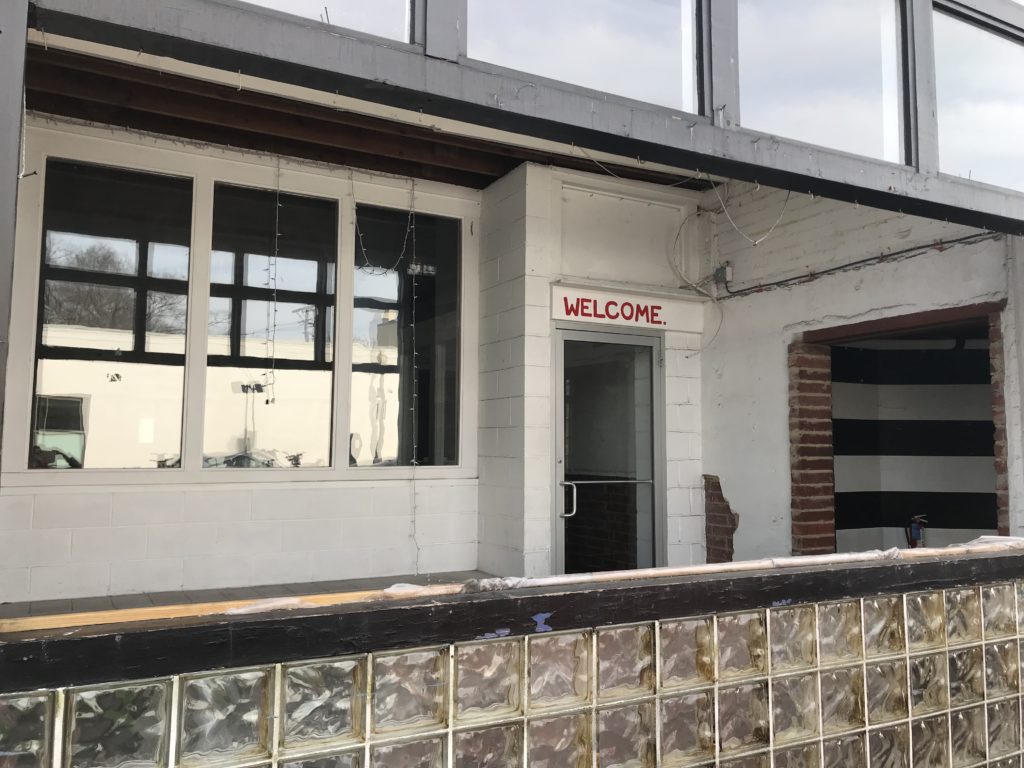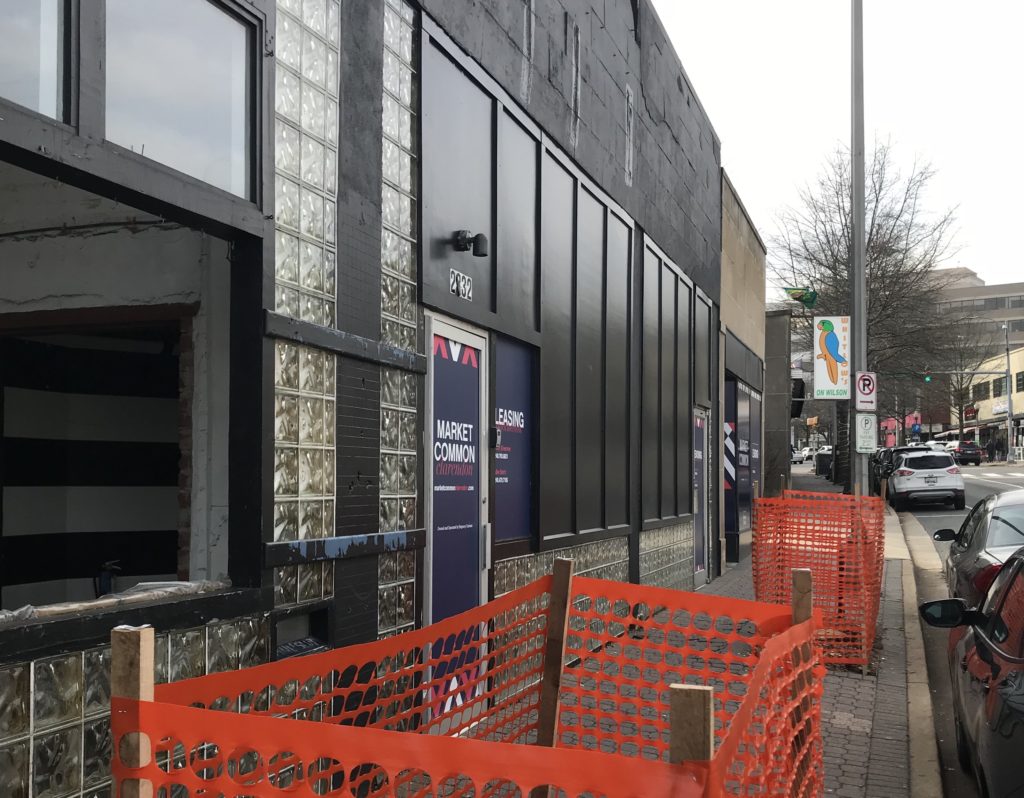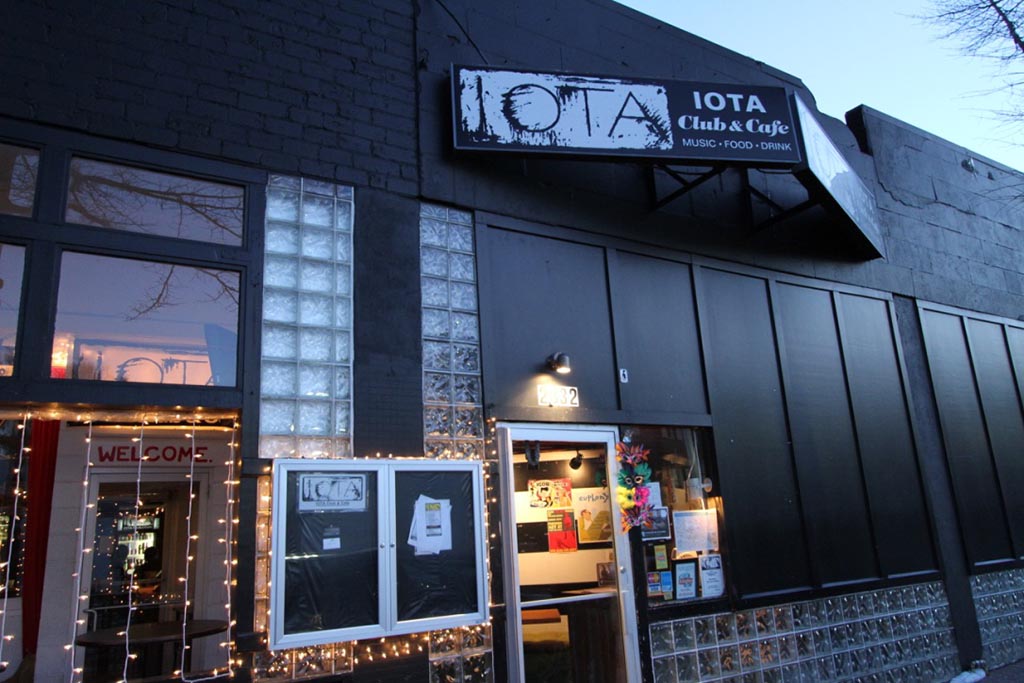The following feature article was funded by our new Patreon community. Want to see more articles like this, exploring important local topics that don’t make our usual news coverage? Join and help fund additional local journalism in Arlington.
“You walked in and you just felt good,” says Eric Brace.
When the IOTA Club and Cafe, a Clarendon performance venue whose motto was “live music forever,” closed its doors in the fall of 2017 after more than 23 years, Brace took it hard. Though the Last Train Home frontman played IOTA with his rootsy rock band on two of the club’s final three evenings, he couldn’t bear to return to the club for its closing night.
“I did not go on the last day because I was kind of too sad,” says Brace, who lived in the D.C. area for about 20 years before moving to Nashville. “I was just physically and emotionally wiped out.”
In a somewhat ironic turn, Last Train Home — a band that had one of its first gigs at IOTA in the mid-’90s and went on to play annual New Year’s Eve shows there for a string of years — performed a late-December set at The Birchmere just a few hours after our conversation. The legendary Alexandria music venue was an inspiration to IOTA’s founders, longtime Arlington residents Jane Negrey Inge and brother Stephen Negrey, who identified it as one of their “idols” in a press release prior to the club’s closing.
Now, more than a year since the closing of the storied arts space — home to performances from Norah Jones, John Mayer, Ryan Adams, Dawes and countless others between 1994 and 2017 — Arlington has yet to fill the void.
For Josh Stoltzfus, deputy director of Arlington Cultural Affairs, the county arts scene is essentially a series of micro-scenes, defined by the venues and events in each neighborhood. But when it comes to specific music spaces, Stoltzfus says, “there is no one flagship that everything revolves around.” Luckily, the county boasts many restaurants and bars offering live, local music, including Galaxy Hut, Rhodeside Grill, Westover Beer Garden, Cafe Sazon and Bistro 29.
Yet none of those establishments regularly host a mix of national touring acts, D.C.-area musicians and poetry readings, as IOTA did for more than two decades.
Today, the Wilson Boulevard building that once housed IOTA lies dormant, its vestibule sporting a dangling string of twinkle lights and a well-preserved, if incongruous, welcome sign. The block is slated for redevelopment as Market Common Phase 2, a property of Regency Centers, with construction expected to begin early this year.
In the press release announcing their closure, IOTA’s owners cited the impending construction and anticipated rent increase as contributing factors in their decision. But as a cultural mainstay that managed to survive for nearly two dozen years in a transforming neighborhood, IOTA and its legacy has not been forgotten.
One project memorializing the space is “The IOTA Chair,” a video series led by D.C. musician Rachel Levitin, who purchased a chair from one of the venue’s fire sales and re-imagined it as a set piece for performances and interviews of onetime IOTA performers she posts on Facebook. Another notable tribute is on the way — in September, Inge launched a GoFundMe campaign for a book that will retell IOTA’s history through her and Negrey’s eyes. Thus far, the effort has raised only about 13 percent of its $30,000 goal but garnered dozens of supportive comments.
“IOTA was one of the most beautiful music communities I ever met in my travels; it helped make my life worth living,” writes one donor.
Inge declined to be interviewed for this article but reflected on her venue via email: “At IOTA, live music was the center and purpose of everything we did,” she writes. “We chased inspired live experiences and creative new music for our stage. Stephen and I had the honor to meet and work with wonderful poets, musicians and musical performers, touring and local. We got to know the people who appreciated the shows, who got it, and who supported IOTA to keep us going for so long.”
For D.C. singer-songwriter Laura Tsaggaris, who started playing IOTA in the early 2000s and has performed throughout the area, the club was “the center” of the local songwriting scene.
“It felt easy — easy to stretch out and do what you wanted to do there,” Tsaggaris says. “I’ve never felt as comfortable as I did there.”
To acquire an IOTA-esque mystique, an Arlington music venue would need to strive not just to attract talented national artists but also serve as a sought-after haunt for the local arts community. Arlington singer-songwriter Justin Trawick, founder of “The 9” songwriter series and co-host of “The Circus Life” podcast, began making the trek to IOTA from Leesburg in 2005 in pursuit of the club’s well-known open-mic night. IOTA had a scene, he says, perhaps matched today only by Jammin Java in Vienna or a couple of newer D.C. venues, such as sister venue Union Stage.
“They’ve really created an amazing culture of not only bands that play there, but people who want to hang out there in that ‘Empire Records’ kind of way,” Trawick says. “IOTA had that.”
Though IOTA certainly had a successful open-mic culture, with two sign-up times per night to accommodate the dozens of eager performers filing in, Arlington’s open-mic opportunities live on. Alexandria musician Alex Parez hosted IOTA’s weekly open mic in its final three years and has since transferred the IOTA format to Rhodeside Grill. While he says “no place can replace IOTA,” he expresses pride over the local talent that continues to surface in Arlington.
Yet Brace, who is also a former music journalist for The Washington Post and the founder of Nashville-based Red Beet Records, expressed doubts about whether modern-day Arlington can provide an affordable space for an IOTA-size venue, which had expanded its capacity to roughly 300 when it closed.
“Arlington’s square footage is so expensive; it’s hard to have a place where you can afford to just have a big empty space in the form of a stage, and it’s hard to invest a lot of money in a great sound system and have a great sound person every night the way IOTA did,” Brace says.
But with the coming arrival of Amazon HQ2 to the newly named “National Landing”, it’s not unthinkable that music venues along the lines of The Wharf’s Union Stage or Pearl Street Warehouse could be part of the development mix.
A spokesperson for National Landing developer JBG Smith declined to comment, but the property website does highlight JBG’s plans for the “Central District” redevelopment project, set to include “a 130,000-gross-square-foot entertainment and shopping destination anchored by a 49,000-square-foot Alamo Drafthouse Cinema, a specialty grocer, restaurants, bars and other experiential offerings.” Could a live performance space be one such offering?
For now, Arlingtonians hoping for an IOTA-like experience will have to wonder and wait for an existing Arlington music hub to expand its offerings (not to mention its footprint) or an entirely new venue to spring up.
“Where there’s a will, there’s a way,” Brace says. “There’s always people making music, and they’ll have little pop-up clubs in basements or house concerts. I’ll choose to be hopeful.”





